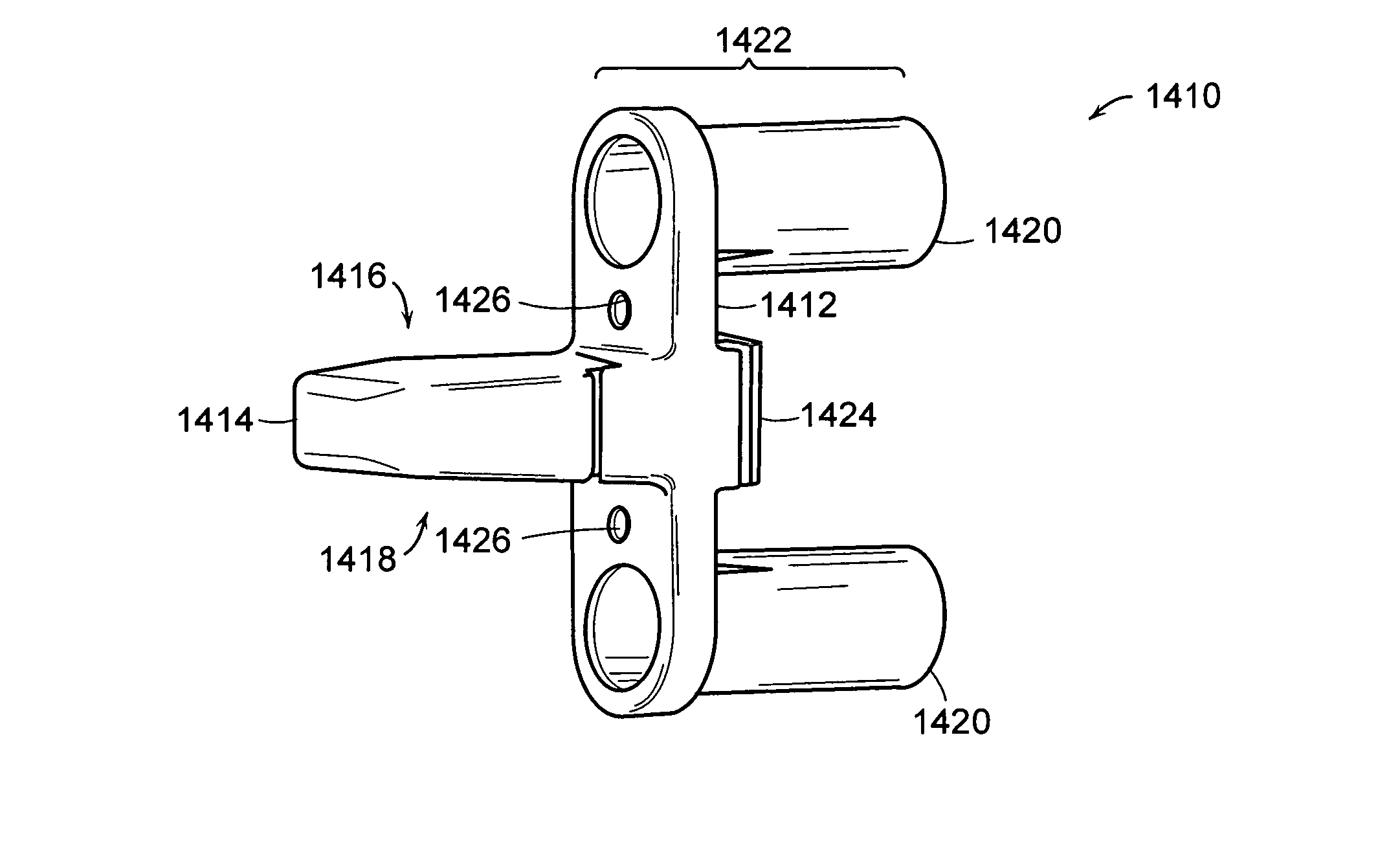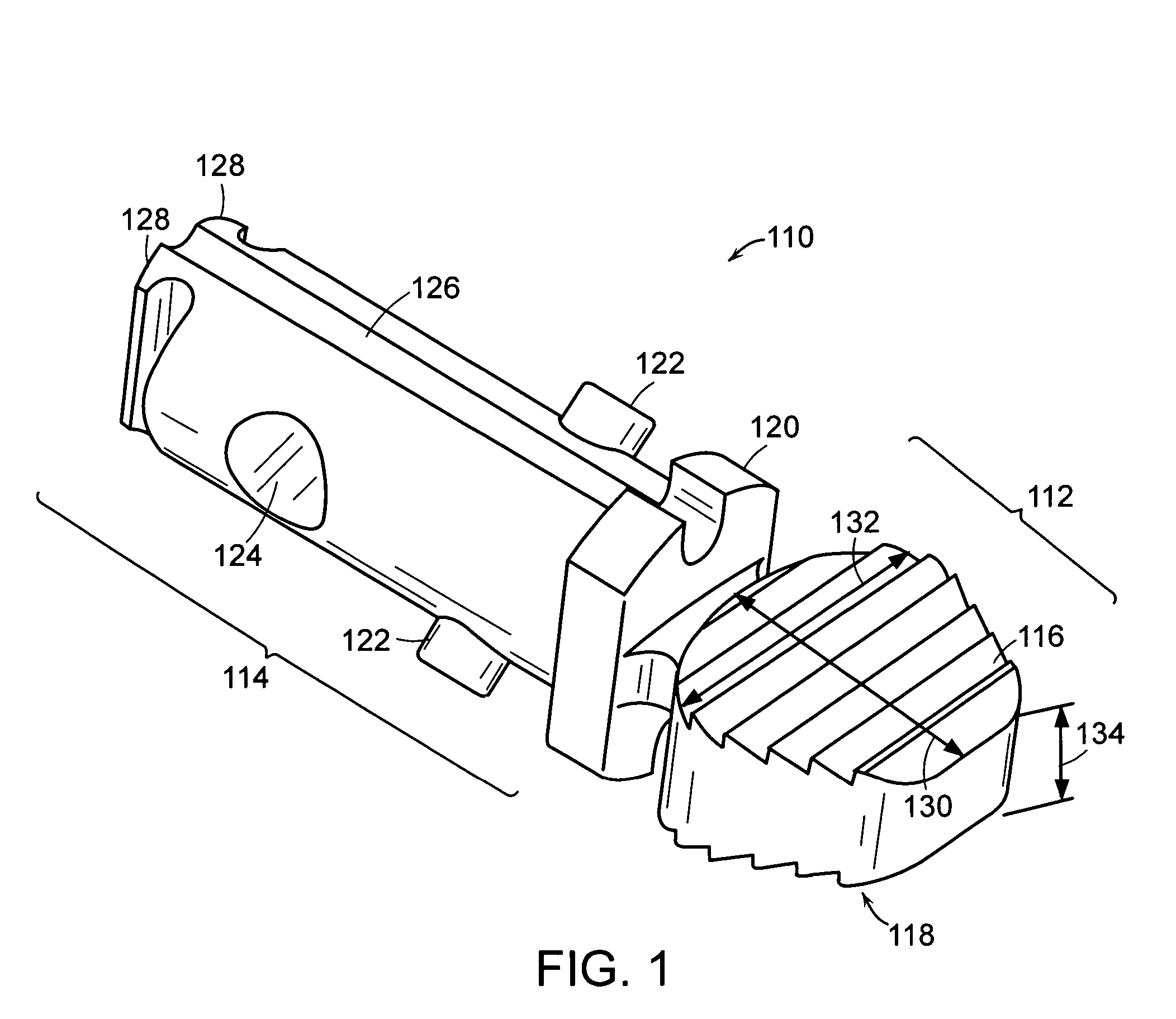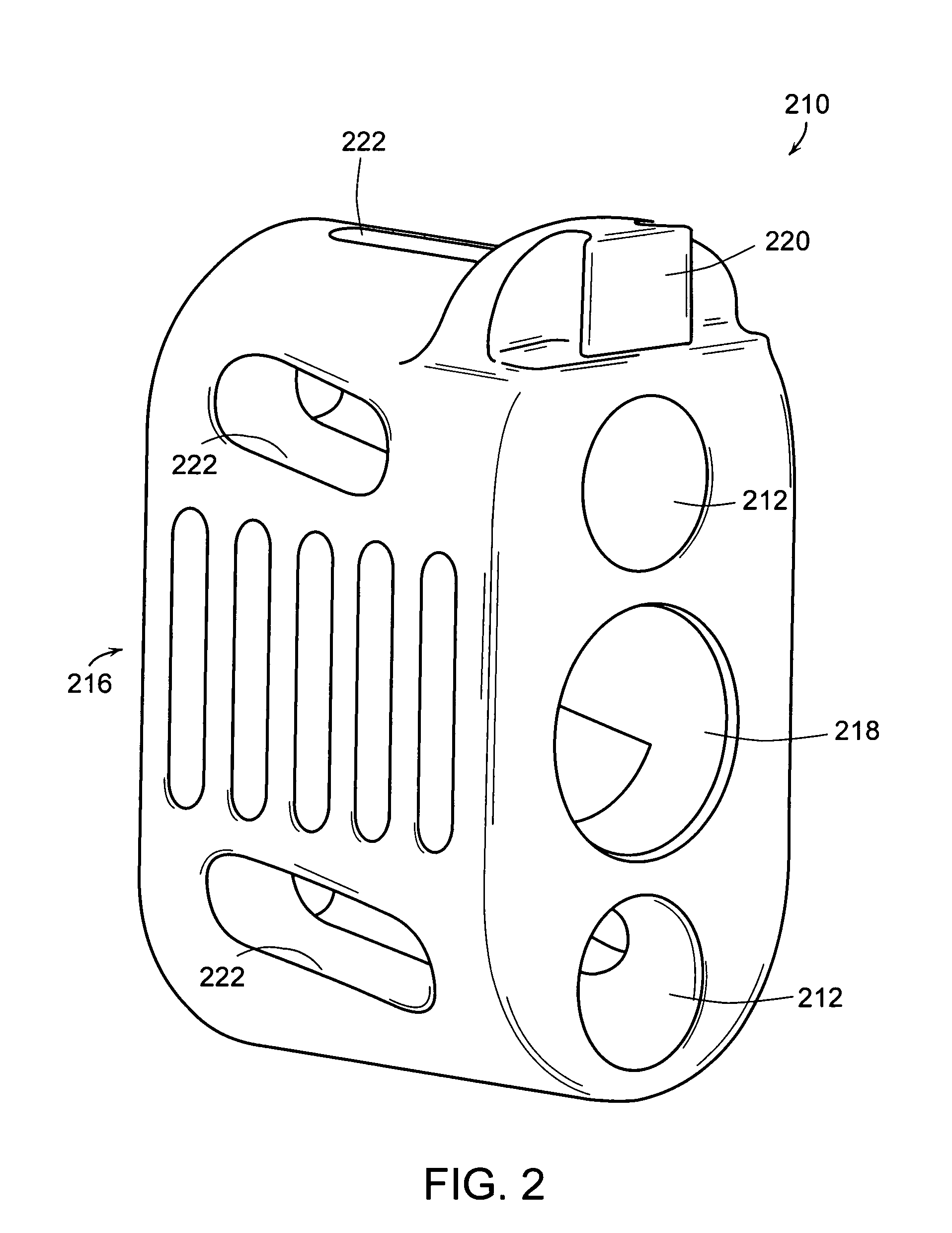Instrument and method for the insertion and alignment of an intervertebral implant
a technology of intervertebral implants and instruments, which is applied in the field of instruments and methods for the insertion and alignment of intervertebral implants, can solve the problems of difficult interoperative process and injury to patients, and achieve the effects of reducing the likelihood of implant expulsion, and reducing the wear of the implan
- Summary
- Abstract
- Description
- Claims
- Application Information
AI Technical Summary
Benefits of technology
Problems solved by technology
Method used
Image
Examples
Embodiment Construction
[0049]The foregoing and other objects, features and advantages of the invention will be apparent from the following more particular description of preferred embodiments of the invention, as illustrated in the accompanying drawings in which like reference characters refer to the same parts throughout the different views. The drawings are not necessarily to scale, emphasis instead being placed upon illustrating the principles of the invention.
[0050]The present invention includes pin guides and methods for placing pins in adjacent vertebrae. The term “pin,” as used herein, refers to a pin (e.g., a threaded or partially threaded pin) or screw suitable for use in spine surgical procedures. For example, pins suitable for use with the present invention include distraction pins.
[0051]The present invention includes a modular pin guide comprising (a) a spacer component including an intervertebral spacer and a coupling member; and (b) a guide component defining a plurality of parallel guide tu...
PUM
 Login to View More
Login to View More Abstract
Description
Claims
Application Information
 Login to View More
Login to View More - R&D
- Intellectual Property
- Life Sciences
- Materials
- Tech Scout
- Unparalleled Data Quality
- Higher Quality Content
- 60% Fewer Hallucinations
Browse by: Latest US Patents, China's latest patents, Technical Efficacy Thesaurus, Application Domain, Technology Topic, Popular Technical Reports.
© 2025 PatSnap. All rights reserved.Legal|Privacy policy|Modern Slavery Act Transparency Statement|Sitemap|About US| Contact US: help@patsnap.com



